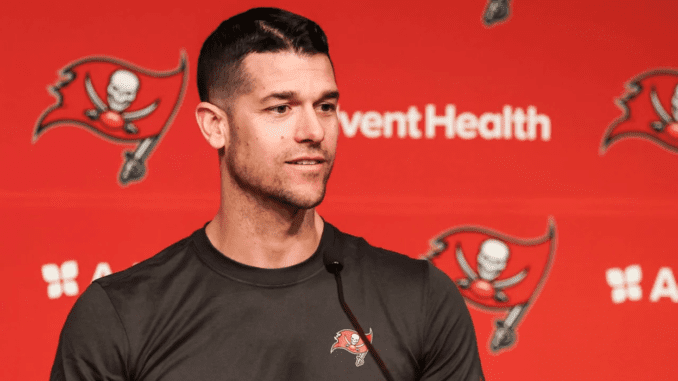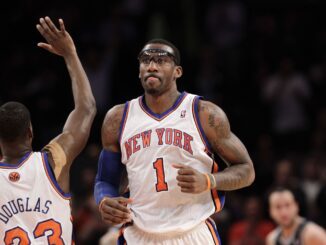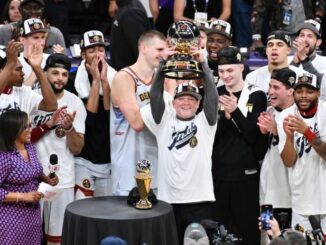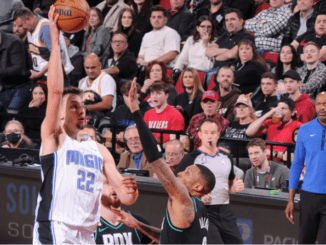
If the Tampa Bay Buccaneers’ offense is as well prepared for its games this season as Dave Canales was for the key question in his introductory press conference, the yards and points should start piling up again.
On Wednesday, Canales met with the Bay area press for the first time since being named the Buccaneers’ new offensive coordinator on February 16. As he noted with a laugh, his recent interview process – which saw him meet with both the Bucs and the Baltimore Ravens – were perfect preparation to address the one topic on everyone’s mind: What is his offensive philosophy? Obviously, he addressed that question well during his interviews with Jason Licht and Todd Bowles.
Canales’ answer was lengthy but focused, and it essentially hit on four bullet points. At the top of the list was a tenet that every coach subscribes – ball control – but will apparently be emphasized even more firmly going forward in Tampa. Former Cowboys Running Backs Coach Skip Peete is reportedly joining the Buccaneers’ staff along with Canales, who noted with obvious appreciation that none of the 14 fumbles the Cowboys were guilty of last season was committed by a running back.
“Number one, it’s all about the ball,” said Canales. “Everything we do with all 11 guys on the offense, it’s going to be about protecting the football. Whether it’s in the run game, pass game or protection, we are going to be crazy about it. One thing that hits my brain really quick: Skip Peete is going to be our running backs coach – they had zero fumbles lost last year from the running back [position]. He could have started that interview with that, dropped the mic and he would’ve been hired. That’s number one.”
Seattle, where Canales was most recently the quarterbacks coach, was middle of the NFL pack in giveaways last season but over the previous 10 years combined they committed the second fewest turnovers, averaging roughly 16 per season. Canales fanatical devotion to avoiding turnovers is obviously a Pete Carroll influence, as is the way the coaching staff will begin their evaluation of every player on offense.
“Number two is focusing on what we control – that is your fundamentals and your attitude,” said Canales. “We’re going to be a developmentally-minded staff that’s looking to develop ‘Player A’ to ‘Player Z.’ They are ours until they’re not. There is no catering to this guy or that guy. We want everybody to develop their fundamental skills. Then the attitude – it starts with effort. I go back to Pete, from Day One, the very first day of spring and the very first day of camp, we critique effort first. We’re looking for people trying really hard. We will get the ‘how to,’ but we’ve got to get the ‘how much’ and ‘how fast’ going before we can really take a step from there.”
Though Carroll’s teams have had a reputation as being determined to run the ball, Seattle ranked just 22nd in run-play percentage last season. Despite trading away their long-time franchise quarterback, Russell Wilson, the Seahawks put their trust in former journeyman Geno Smith and were rewarded with 4,282 passing yards and 30 touchdown passes. Canales won’t have a specific target number of carries for any given game, but he does want the run game to operate in a way that helps the aerial attack, and vice versa. Some of that has to do with keeping the opposition guessing as to what is coming.
“The third thing is the marriage between the run and pass,” said Canales. “That is our identity – things that start looking one way, but end up being different. The thing that is going to help us, without getting into too much detail, is that we’re going to do things that are simple in concept but are complex in delivery. What do I mean by that? It’s not going to be a lot of plays. It’s going to be a few plays out of different personnels and different looks so that our execution stays at a high level there.
“Then we’re going to be situationally aware. We are going to be a very smart football team. We’re going to know what we are looking at and the situations. The play calls are going to come out based on the specific area of the field. The players are going to be aware of, ‘When we get this situation, we should probably only be calling this one or two plays.’ They will be in tune with a lot of that stuff, and then of course ready to adjust. The thing that allows you to adjust is not having so much volume. When you keep the package tight then you’re able to adjust and make little fine-tuning changes within a gameplan so that they can continue to play fast.”
If Canales and company will be judging players on their effort at the very beginning of the process, they will also be stressing a certain attitude at the end.
“And the last part that will be our calling card is ‘finish,'” he said. “You’ll see linemen running down the field. You’ll see [plays like] Geno last year chasing Ken Walker down on runs just trying to get his body in the way, in a smart way to keep himself safe. You’re going to see 11 people fly off the ball and really finish – finish drives, finish quarters, finish halves and finish games. It starts in practice. That’s the general philosophy of what we will do.”
It takes time, of course, to install a new offense and a specific set of core tenets. And Canales is just at the starting point of determining what the strengths and weaknesses of the roster are and what concepts will work best with the players on hand. As he learns those things, he’ll be able to gradually build out a robust offense based on those tenets.
“It’s going to come down to who do we have? Who are our guys? Who are our players?” he said. “That will give us the flexibility, right? I think as a coordinator, it’s about developing the scope. As long as you scope [and] what I mean is, how much can this group handle? This is not the Seahawks. This is not the Buccaneers of 2022. This is our new team, what scope can they handle? And then just do a little bit more so that we are not predictable and so that teams cannot just pick us apart.”



